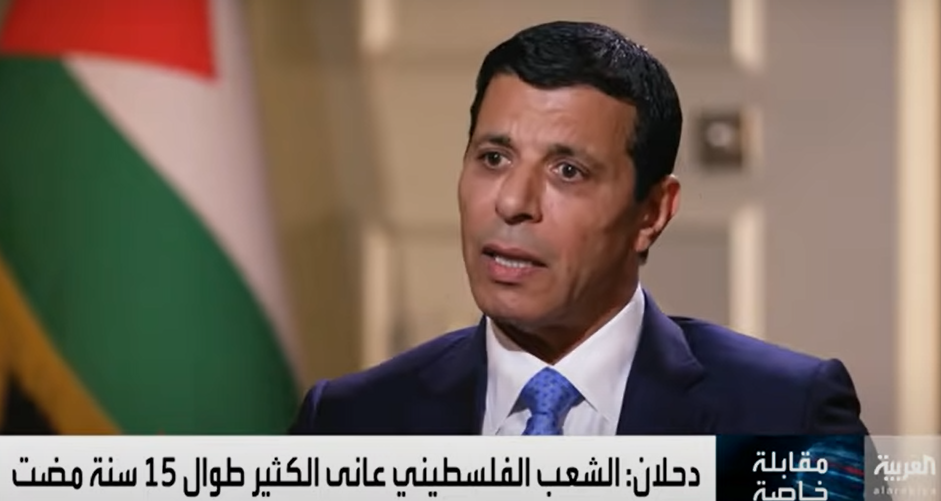Since the outset of the conflict in Gaza, Dahlan has intensified his efforts to provide humanitarian aid to the Strip, particularly from the United Arab Emirates.
Known as the “Phoenix” of Palestinian politics in Gaza, Dahlan aims to re-enter the political arena and is among the contenders to lead Gaza post-war.
Dahlan, head of the reformist faction in the Fatah movement, was expelled in 2011 by PA Chairman Mahmoud Abbas on charges of murder and financial corruption.
He relocated to Abu Dhabi, becoming an adviser to the President of the United Arab Emirates and a significant arms dealer.
Despite being born in the Khan Yunis refugee camp, Dahlan has maintained political influence in Gaza through humanitarian activities and aid to its residents.
His connections with Hamas leaders, although seemingly beneficial, stem from their common opposition to PA Chairman Mahmoud Abbas.
The question of who will lead Gaza has been on President Biden’s desk, with both the US and Israel aiming for a shift away from Hamas towards a more secular PLO-led governance, fostering hopes for renewed political dialogue between the PA and Israel.
Israel projects that the conflict in Gaza will persist for several months, providing the Biden administration an opportunity to establish alternative Palestinian leadership, crucial for international aid and the region’s recovery.
Muhammad Dahlan has emerged as a significant figure in this context, actively shaping public opinion in Gaza through media appearances and diplomatic efforts, including talks in Doha with Hamas leader Ismail Haniyeh.
Dahlan’s popularity in Gaza contrasts sharply with the residents’ disdain for PA Chairman Mahmoud Abbas, who is perceived as an agent of Israel and the US.
However, any potential leader in Gaza must gain approval from Israel and the US.
Despite Dahlan’s extensive connections with Arab leaders and international officials, he faces obstacles, including a US ban since 2007 due to allegations of embezzlement related to funds received to establish a security force in Gaza.
Israeli security officials echo these concerns, accusing Dahlan of terrorist activities during the second intifada.
This, coupled with his perceived alignment with Yasser Arafat’s ideology, complicates his acceptance by the Israeli political echelon.
The PA’s opposition to Dahlan’s return to Fatah and his potential senior role is evident, with key figures actively working against him.
As Muhammad Dahlan navigates the complex political landscape, his current alignment with Hamas’s anti-Israel stance may bolster his popularity among Gazans but could hinder his acceptance in a future leadership role.
Dahlan’s associates argue that he has more to contribute to the unfolding situation, emphasizing that his political journey may not have reached its conclusion.




